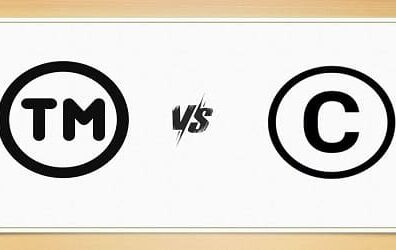Relaxations To Private Companies Under Central Government vide notification no. 464(E) dated 5th June, 2015

Introduction
In today’s dynamic business world, staying up to date on government notifications is critical for private enterprises looking to manage compliance effectively. One of such crucial notification that resulted in major relaxations to private companies by the Central Government is documented in Notification No. 464(E), dated June 5, 2015.
Relaxations to Private Companies vide Notification No. 464(E)
Notification No. 464(E), dated June 5, 2015 was issued with the goal of maintaining a favourable business environment and encouraging ease of doing business, including a number of provisions meant to expedite operations for private enterprises. Let’s look at the essential components of these relaxations to private companies and consider their ramifications.
Relaxations To Private Companies Under Notification No. 464(E)
The following relaxations to private companies are provided under Notification No. 464(E), dated June 5, 2015:
Sr. No. | Reference in the Companies Act, 2013 | Exceptions/Modifications/Adaptations |
1 | Chapter 1 Section 2(76) (viii) | Preliminary Shall not apply with respect to Section 188 of the Companies Act, 2013. Note: Section 2 sub section (76) defines related party with reference to a company and as per Section 2(76)(viii) the following are considered to be a related party. A subsidiary, holding or an associate company of such company or A subsidiary of holding company to which it is also a subsidiary. Effect: Section 2(76)(viii) is not applicable to a private company with respect to Section 188 (i.e. related party transactions). Accordingly, a subsidiary/ holding/ associate company of a private limited company or a subsidiary of holding company of a private limited company will not be considered as a related party. |
2 | Chapter IV Section 43 & Section 47 | Share Capital and Debentures Shall not apply where memorandum or articles of association of the private company so provides. Note: Section 43 deals with kinds of capital and Section 47 deals with voting rights. Effects: Memorandum of Association or Articles of Association of a Private Limited Company can provide for a clause, making sections 43 and section 47 not applicable to that company. |
3 | Chapter IV Section 62(1)(a)(i) and Section 62(2) | Share capital and Debenture In clause (a), in sub-clause (i), the following proviso shall be inserted:- Provided that notwithstanding anything contained in this sub-clause and sub section (2) of this section, in case ninety per cent of the members of a private company have given their consent in writing or by electronic mode, the period lesser than those specified in the said sub-clause or sub-section shall apply. Note: Section 62 of the Companies Act, 2013 deals with further issue of shares. Section 62(1)(a) deals with conditions for sending letter of offer to the existing holders. Section 62(1)(a)(i) deals with the time within which the letter of offer is to be accepted by the existing shareholders. According to Section 62(1)(a)(i) the offer shall be made by notice specifying the number of shares offered and limiting a time of not being less than fifteen days and not exceeding thirty days from the date of offer within which the offer, if not accepted, shall be deemed to have been declined. Effects: In case ninety per cent of the members of a private company have given their consent in writing or in electronic mode, the periods lesser than those specified in the said sub-clause or sub-section shall apply. Accordingly, time limit for acceptance of offer by existing shareholders may be less than 15 days if 90% of the members of a private limited company have given their consent either in writing or through electronic mode. |
4 | Section 62(1)(b) | In clause (b), for the word “special resolution”, the word “ordinary resolution” shall be substituted. Note: Section 62(1)(b) requires passing of Special Resolution for offering of further shares to employees subject to passing of special resolution and other conditions prescribed under the rules. Effect: For private limited companies, passing of ordinary resolution is sufficient. |
5 | Section 67 | Shall not apply to the private companies – (a) in whose share capital no other body corporate has invested any money; (b) if the borrowings of such company from banks or financial institutions or any other person or corporate is less than twice its paid-up share capital or fifty crore rupees, whichever is lower; and (c) such a company is not in default of repayment of borrowings subsisting at the time of making transactions under this section. Note: Section 67 deals with restrictions on purchase by a company or giving loans by it for purchase of its shares. Effects: Private Companies are exempted from Section 67 subject to the following three conditions. (a) a private limited company in whose share capital no other body corporate has invested any money; (b) Borrowings by such private company from banks or financial institutions or anybody corporate is less than twice its paid-up share capital or fifty crore rupees, whichever is lower; and (c) such a company is not in default in repayment of such borrowings that are subsisting at the time of making transactions under this section. |
6 | Chapter V Section 73(2)(a) to Section 73(2)(e) | Acceptance of Deposits by Companies This section shall not apply to a private company which accepts from its members monies not exceeding one hundred per cent of aggregate of the paid up share capital and free reserves, and such company shall file the details of monies accepted by it to the Registrar in such manner as may be specified under the Companies Act, 2013. Please note that Section 73(2) deals with conditions for acceptance of deposits from members. Effects: Conditions for acceptance of deposits from members is not applicable to a Private Company if the monies accepted does not exceed one hundred per cent of aggregate of its paid-up share capital and free reserves, and such company shall file the details of monies so accepted by it to the Registrar in such manner as may be specified under the act. |
7 | Chapter VII Section 101 to Section 107 and Section 109 | Management and Administration This shall apply unless otherwise specified in respective sections or the articles of the company provide otherwise. Note: Articles of Association of a Private Company can have specific provisions with respect to – notice of the general meeting (Section 101); Statement to be annexed to notice (Section 102); Quorum for meeting (Section 103); Chairman of meetings (Section 104); proxies (Section 105); restriction on voting rights (Section 106); Voting by show of hands (Section 107); Demand for poll (Section 109). Effects: Articles of Association of a Private Company may have specific provisions with respect to above mentioned sections. |
8 | Section 117(3)(g) | Shall not apply Note: Section 117 deals with resolutions and agreements to be filed with registrar. Section 117(3)(g) deals with filing of resolutions passed in pursuance of sub-section (3) of section 179(i.e. resolutions to be passed only at the meeting of Board of directors). Effects: Private companies are not required to file with the registrar the resolutions passed under Section 179(3). |
9 | Chapter 10 Section 141(3)(g) | Audit and auditors This shall apply with the modification that the words “other than one person companies, dormant companies, small companies and private companies having paid-up share capital less than one hundred crore rupees” shall be inserted after the words “twenty companies”. Note: Section 141(3) deals with conditions for eligibility for appointment as an auditor of a company. Section 143(3)(g) limits the number of audits by an auditor to twenty companies. Effects: A One person company, dormant company, small company and private company having paid-up share capital less than one hundred crore rupees is excluded from this limit. |
10 | Chapter XI Section 160 | Appointment and qualification of directors Shall not apply Note: Section 160 deal with right of persons other than retiring directors to stand for directorship. Effect: For private companies the requirement of Deposit of Rupees one lakh is not required from now. |
11 | Section 162 | Shall not apply Note: Section 162 of the Companies Act, 2013 deals with the appointment of directors to be voted individually. Effect: Now, more than one director can be appointed through a single resolution |
12 | Chapter XII Section 180 | Meetings of board and its powers Shall not apply Note: Section 180 deals with restrictions on powers of the Board. Effects: Special Resolution is not required to exercise such power of board as provided in Section 180 of the act. |
13 | Section 184(2) | This section shall apply with the exception that the interested director may participate in such meetings after disclosure of his interest. Note: Section 184 deals with disclosure of interest by director. Section 184(2) prohibits interested director from participating in meeting. Effects: Interested director of a private company can participate in the meeting after disclosing his interest. |
14 | Section 185 | Shall not apply to a private company – (a) in whose share capital no other body corporate has invested any money; (b) if the borrowings of such a company from banks or financial institutions or anybody corporate is less than twice of its paid-up share capital or fifty crore rupees, whichever is lower; and (c) Such a company has no default in repayment of such borrowings subsisting at the time of making transactions under this Section. Note: Section 185 deals with loans to directors Effects: the Provisions of Section 185 shall not apply to a private company if the following conditions are fulfilled. (i) that no other body corporate has invested any money in share of the company; (b) that the borrowings of such company from banks or financial institutions or anybody corporate is less than twice of its paid-up share capital or fifty crore rupees, whichever is lower; and (c) that the company has no made any default in repayment of such borrowings subsisting at the time of making transactions under this Section. |
15 | Second proviso to Section 188(1) | This shall not apply Note: Second proviso to Section 188(1) states that no member of the company shall vote on such resolution, to approve any contract or arrangement which may be entered into by the company, if such member is a related party. Effects: in private company, related party to any contract or arrangement can vote on such resolution as a member of the company |
16 | Chapter XIII Section 196(4) and (5) | Appointment and Remuneration of the Managerial Personnel Shall not apply Note: Section 196(4) deals with appointment of managing director, whole time director or manager Section 196(5) deals with validating actions of managing director; whole time Director/manager, if the appointment is not approved by a company in general meeting. Effects: Approval of central government on variation of terms of appointment from Schedule V is not required for private companies. |
Conclusion
This notification has far-reaching effects for private enterprises. These relaxations seek to create an environment in which private companies can focus on development and innovation without being stymied by regulatory difficulties by reducing compliance requirements and increasing operational flexibility.
In conclusion, Notification No. 464(E) dated June 5, 2015, represents a key milestone in the regulatory landscape for relaxations to private companies. The Central Government wishes to establish a business-friendly climate by easing regulations, to foster entrepreneurship and economic growth. Private companies should remain alert and use these relaxations to maximize their operations while adhering to the law.
Follow Us
Keep Yourself Updated By Following Us




